
How to balance kindness and profitability
19 September 2023
Jon Fletcher talks about why employers need to support their people beyond pay packet alone, the benefits of doing so, and the perils of short-term thinking.
This article is part of our series on the Economics of Kindness. Find out how we're changing the way that business sees kindness in the workplace.
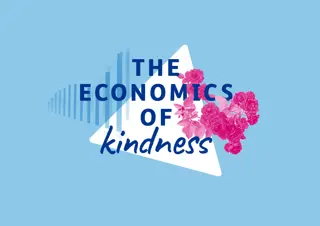
Like most parents, I often find myself asking my two young daughters to base their behaviour on how they’d want to be treated by others. I think that philosophy can be really powerful when you translate it into business, whether you’re talking about customer service, employee engagement, product development or business systems.
I think kindness drives transparency and honesty, especially about failings and failures, and helps develop products more in tune with customers’ needs.
As you’d expect from a B Corp, kindness runs through everything we do at Big Clean Switch. But we don’t often call it out as such. Instead, most of our internal dialogue is shaped by what I would think of as a kindness ‘dynamic’.
“Not very B Corp” has become a way of flagging behaviours or decisions that don’t sit right, but without us ever needing to put a precise shape around what that means. It’s intuitive, and over time it’s built a definition and energy of its own.
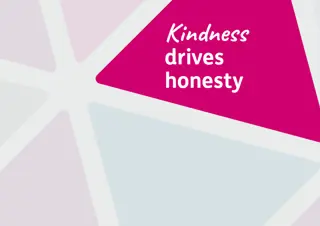
Employees’ needs have changed. Have you addressed this shift?
Even before the pandemic, I think it was already becoming apparent that perks and discount codes don’t necessarily speak to employees’ fundamental needs. Covid brought that into sharp focus. The isolation, the fear – the trauma many people experienced – accelerated a move towards employers refocusing on people’s basic wellbeing.
When a quarter of all adults report a clinically significant level of psychological distress, when one in six households is in serious financial difficulties, and when more than seven million homes are in fuel poverty, we have to offer something beyond discounts on work shirts and cinema tickets.
In part, I hope this shift has been driven by the growth of ‘kindness-minded’ businesses. But it’s probably also stemming from a simpler recognition that people whose lives are shaped by anxiety and financial distress don’t make great employees.
And that leads us to my next point: If you can address these dramatic shifts in employees’ needs, you stand to make some major gains.
First, having employee benefits that focus on people’s mental wellbeing increases productivity. In a study published in the journal The Lancet, the total global economic impact of lost productivity due to poor mental health was estimated at $3.5 trillion. That’s an eye-watering figure calculated based on how mental wellbeing affects absenteeism – where employees miss work – and presenteeism, where people are at work but less productive.
"If you can address these dramatic shifts in employees’ needs, you stand to make some major gains."
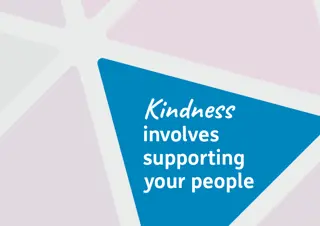
Second, in a super-competitive jobs market, employee benefits that fundamentally improve peoples’ lives are becoming an essential way to stand out. There’s a well-documented war for talent happening across most industries, and organisations need to offer prospective candidates more rounded packages if they’re to stand a chance of winning.
Finally, there’s a realisation that some of the underlying socio-economic and inflationary issues can’t be addressed simply by increasing pay. If we’re upping salaries to help people cover unaffordable energy bills, or to help service unaffordable debt, is that really the right answer in the long run?
If, instead, we’re able to help every employee cut £300, £400 or even £500 off their annual energy bills, those savings are baked in year after year. Not only that but their value is likely to increase over time, as rampant inflation further pushes up the cost of all that energy they’re no longer having to buy.
The same goes for debt advice. If we can help people consolidate their debts and navigate a path to reducing them, the long-term impact can be much bigger than a few pounds in their wage packet.
This absolutely isn’t about using those kinds of support as a shield to keep wages low. Paying wages in line with the cost of living is the number one priority. But we do have to recognise that delivering value to your people isn’t just about decent pay. There are other ways to support them, many of which can bring far greater long-term impact of increased productivity and ultimately profitability for comparatively little cost.
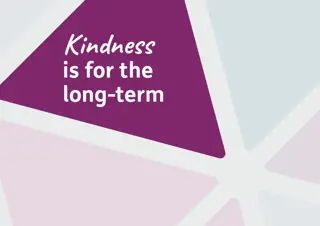
Companies that practise short-termism are destroying themselves
This virtuous circle of being kind and boosting profitability only really works by taking a long-term view. The big challenge is that short-termism is baked into our thinking. Quarterly earnings targets and KPIs crafted purely around financial performance have played a huge part in shaping many of the greatest threats businesses face today.
Fundamentally, short-term corporate behaviour that undermines the climate, oceans and biodiversity our businesses depend upon, that facilitates the destruction of the social norms underpinning a stable, functioning society, or that minimises tax revenues to critical services that support a healthy, educated workforce, is only plotting the path to many companies’ own destruction.
On the flip side, those with a more long-term view that recognise the symbiotic relationship between their activities and the environment and society upon which they depend are likely to build stronger, more resilient businesses that last for generations to come.
"Those with a more long-term view that recognise the symbiotic relationship between their activities and the environment and society upon which they depend are likely to build stronger, more resilient businesses that last for generations to come."
It’d be foolish to pretend that baking kindness into decision making is always easy, of course. It’s often easier to stick to business as usual – “the way we’ve always done it” becomes the way it will always be done. But that doesn’t make a good company, regardless of whether we’re talking about environmental and social issues or commercial ones. Rigid, inflexible businesses are poorly placed to adapt to a rapidly changing world, to new competitors, or to new consumer behaviours.
There are inevitably tensions between immediate profits and the greater good, and we don’t always get that balance right, but we do aim to always ask the question of ourselves and recognise when we could have done things differently.
Ultimately, it’s the businesses that ask these difficult questions, that support their people in meaningful ways, and that look to the future who will survive and do well. In short, kinder businesses prosper.
About the author
Jon Fletcher is the founder of Big Clean Switch, a fellow B Corp that helps homes and businesses reduce their energy bills and carbon emissions. Having spent years working with businesses and governments to encourage more sustainable lifestyles, Jon set up Big Clean Switch to make it easy for people to switch to reputable green energy tariffs – and now works with employers to help their people with the cost of living and to cut carbon.
Related Insights
Trending content in this series
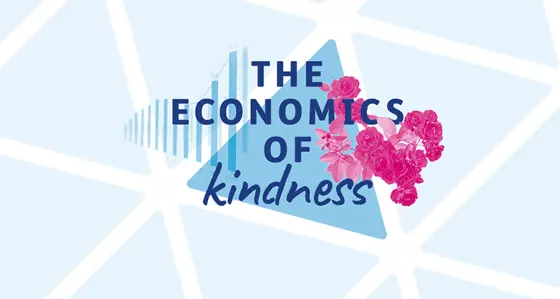
Introducing the Economics of Kindness
At Baringa we’re convinced that, no matter the macroeconomic backdrop, kindness in business really does pay. That’s why we’re taking this opportunity to explore the economics of kindness across four pillars: people, business, leadership and investors.
Read more
People – planet – profit, in that order
The notion of a ‘triple’ bottom line – people first, then planet, then profit – is reshaping how organisations around the world do business. They’re bringing corporate kindness to the fore as we enter a new type of economy, and the businesses that organise themselves in this way will be the ones that succeed.
Read more
Redefining kindness in the workplace
Corporate kindness is all about the impact an organisation has on the world, engaging in responsible practices that benefit their customers, employees, and the communities they operate in.
Read more
Bringing kindness back to the top of the leadership agenda
Should kindness be back at the top of the leadership agenda? Managing Partner Adrian Bettridge discusses how when we lead with kindness, we generate lasting success for ourselves, our clients and our businesses.
Read more
It’s not easy to be a kind leader
Can leaders be kind all of the time? What gets in the way? Ian Peters reflects on the challenges and trade-offs of trying to be kind to all stakeholders.
Read more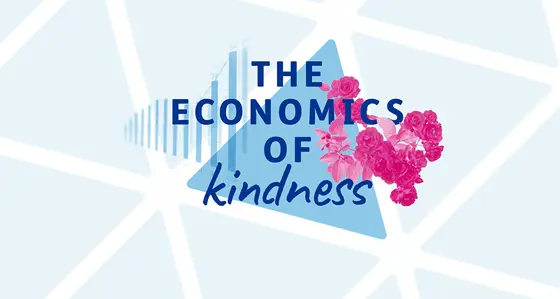
Our Economics of Kindness journey: the story so far
What have we learned about kindness in business and in our public organisations? Does it pay? And if so, how?
Read moreIs digital and AI delivering what your business needs?
Digital and AI can solve your toughest challenges and elevate your business performance. But success isn’t always straightforward. Where can you unlock opportunity? And what does it take to set the foundation for lasting success?